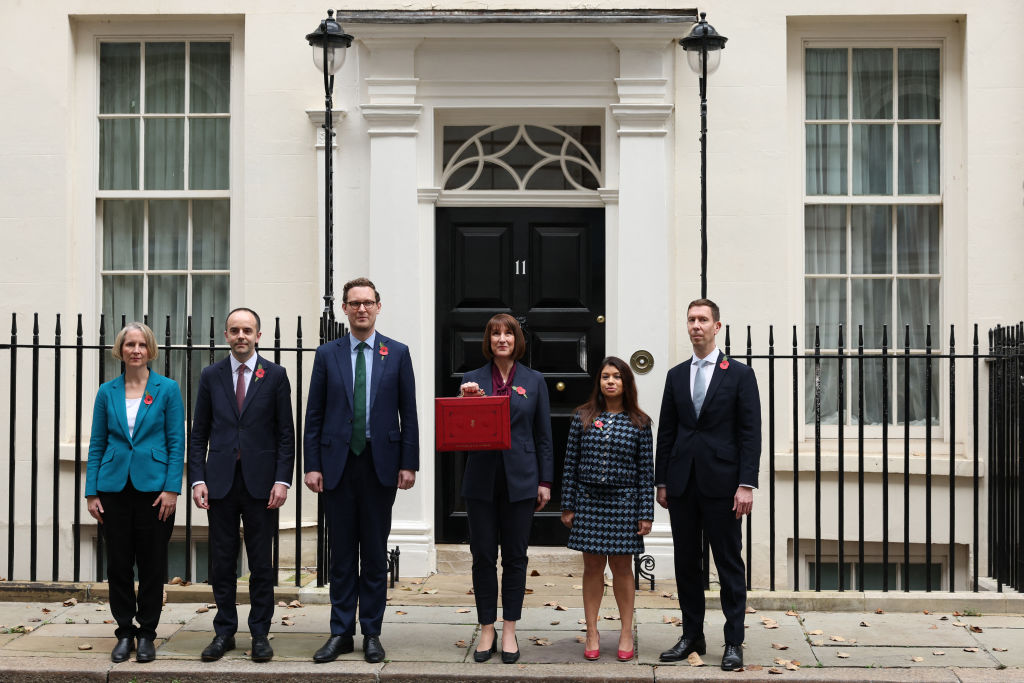As Rachel Reeves attempts to woo investors at Davos, the Chief Secretary to the Treasury has stayed behind in London as work gets underway on Labour’s comprehensive spending review. Darren Jones also found time to set out his thinking in a keynote speech at the Institute for Government’s 2025 conference, where he laid out stricter funding requirements for government departments and plans for Treasury reform in a bid to impose tighter controls over spending.
Jones batted off attempts to pin him down on government controversies playing out elsewhere – using, as Keir Starmer did in PMQs on Wednesday, the ‘speculation’ excuse to avoid commenting on plans to install a third runway at Heathrow Airport, a move that he had previously labelled ‘unconscionable’. Sticking to the script, he was clear that if government departments don’t meet the Treasury’s requested 5 per cent spending cut they won’t receive money for new projects. ‘We are long overdue a reckoning with government spending,’ Jones said firmly. ‘We will no longer just negotiate what top ups to existing projects departments will get, but we will scrutinise and challenge every pound of existing budgets first.’
Yet despite his thinly-veiled warnings about tough cuts ahead, Jones was upbeat as he described his plans for Exchequer reform. From digital dashboards featuring modelling systems that will predict policy benefits to using AI to analyse departmental spending, Jones was keen to stress that the tech revolution is coming to the Treasury. Departments will be brought together in ‘mission groups’ to help better divvy up funds and make spending a ‘shared problem’, ensuring too that money spent is more specifically directed to Labour’s ‘plan for change’ priorities. Meanwhile further scrutiny of spending plans will come via ‘challenge panels’ of academics and experts.
Jones wants to put data ‘at the heart’ of the spending review to better understand how departments can work together to drive growth. The idea is to be able to have a system that continuously evaluates how effective government spending is. The Reeves-founded Office for Value for Money will play a key role, and Jones was keen to highlight that the Treasury has accepted the first recommendation from the quango to set up regular ‘value for money reviews’ in the alternating years between spending reviews. The announcement comes amid reports some MPs aren’t convinced it itself is value for money – and it will take more than that to convince the Treasury select committee of its worth. Committee chair Dame Meg Hillier remarked this week that the organisation was ‘understaffed, poorly defined [and had been] set up with a vague remit and no clear plan to measure its effectiveness’. Hillier is also a Labour MP.
Will more transparency really manage to soften the blow of ‘ruthless’ spending cuts?
If the government’s internal reform pans out the way Jones hopes, by the time the next election comes around ‘the way you engage with the state should feel very, very different’. However Jones wants to first engage with Brits on the spending review. ‘One group that I’m amazed we don’t engage more often in these types of issues is the public,’ he told the IfG audience. ‘When spending reviews happen, the public are not involved in any way.’ Announcing with some enthusiasm that he was being ‘allowed out of the Treasury to go around the country’, Jones is planning to engage more with public service users and workers to ‘just provide a little bit of challenge and depth and colour about the decisions we take with our dashboards and our spreadsheets in the nice offices in Whitehall’.
And that is the crux of the matter: as well as getting colleagues on side, the Treasury man needs public support if he wants to see his reforms take place sans hitch. Despite Labour wasting no opportunity to highlight the challenges facing the new government and the party’s call for patience, both Prime Minister Keir Starmer’s ratings and those of the government have steadily worsened over the last six months while even Labour’s own supporters have been quick to turn their backs on the reds. Jones’s hope is that re-evaluating how the government speaks to voters and being more up-front about hard decisions will help tame the public response.
But will more transparency really soften the blow of ‘ruthless’ spending cuts – as opponents will surely be quick to slam ‘austerity measures’ and warn of tax rises? After all, the spending review could see unprotected departments having to find difficult savings. Things could get even worse if Reeves finds in March that the OBR forecasts are unforgiving – and she may have to find fresh cuts or raise taxes to meet her fiscal rules. While the cost-of-living crisis and state of public services remain top priorities for Brits, it’s going to take a lot of talking to keep them on side.
Listen to more on Coffee House Shots, The Spectator’s daily politics podcast:







Comments